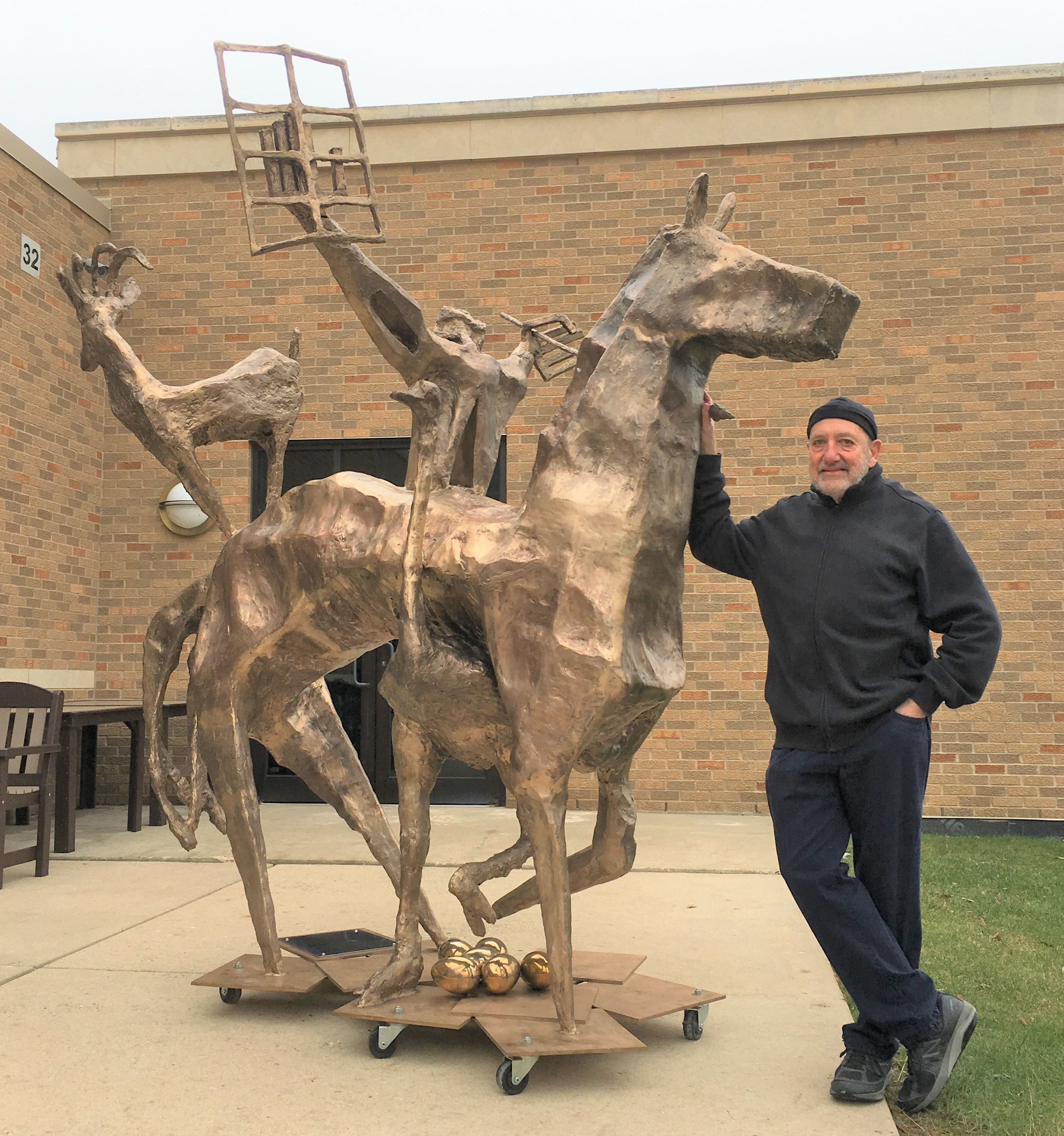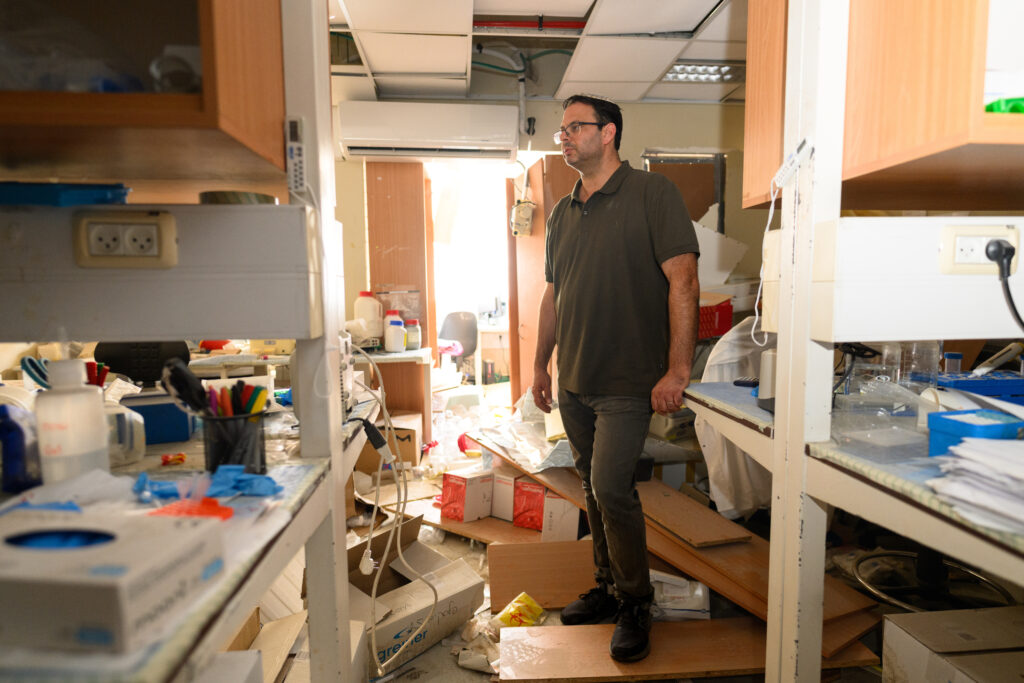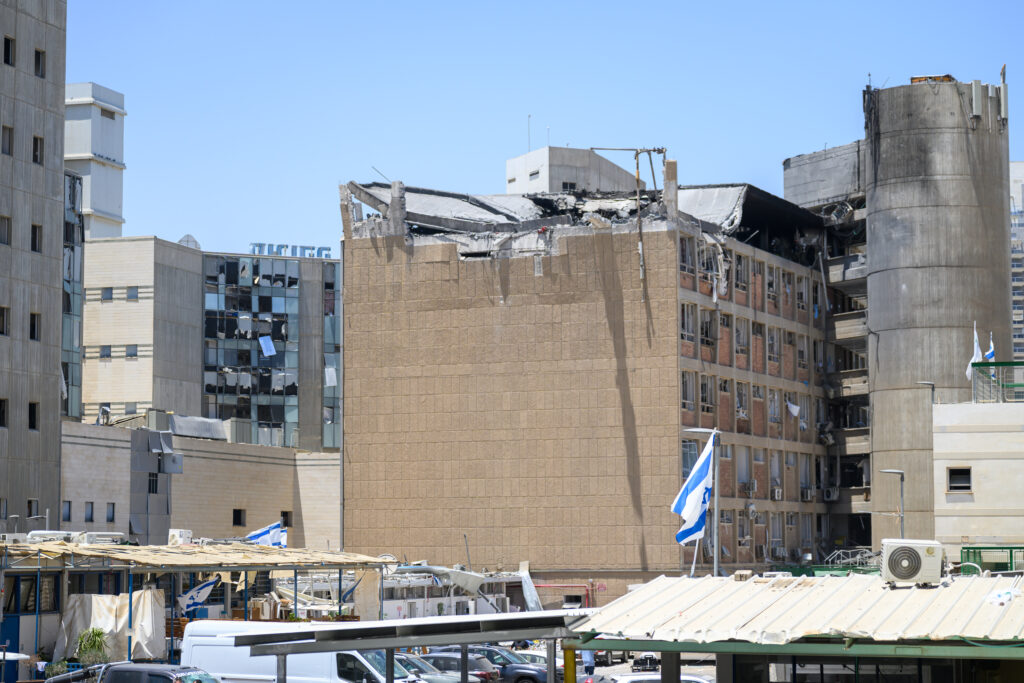
Milwaukee Artist Unveils Sculpture Being Donated to BGU
Milwaukee Artist Unveils Sculpture Being Donated to BGU
May 1, 2019
Previewed at the Milwaukee JCC, the Bronze “CYBERGLYPH” Was Inspired
by the Negev Desert and BGU’s Cybersecurity Leadership
World-renowned Milwaukee native and artist Richard Edelman presented a new, Israel-inspired bronze work called CYBERGLYPH at the Harry & Rose Samson Family Jewish Community Center in Milwaukee on May 1. It will be exhibited there until May 7 before it is shipped to its ultimate home on BGU’s Marcus Family Campus for installation on July 3. The artist is generously donating the sculpture to BGU.
Accompanying the sculpture at the JCC is a photo exhibition highlighting the artist’s process. Another one created by American Associates, Ben-Gurion University of the Negev (Americans for Ben-Gurion University) tells the story of the 50-year-old University and its impact on the development of the Negev Desert. This exhibition will be viewable during the entire month of May.
Edelman was inspired to create CYBERGLYPH by Negev desert petroglyphs made by ancient peoples and the symbolic logic used in BGU’s cybersecurity labs that helps keep Israel safe from cyberattacks. He found the idea of a sculpture themed on the coded language of the two intriguing.

Richard Edelman with CYBERGLYPH
Edelman explains, “In considering a sculptural project for BGU, my wife Nina and I toured the Negev for five days seeking images, symbols and materials to incorporate into a prospective work. Visiting Sde Boker, I encountered petroglyphic images that appear on rocks throughout the Negev, including beautifully rendered natural figures of horses, camels, ibexes, ostriches, as well as abstract symbolic representations of men, gods, astronomical maps, and meeting places. While touring BGU, I was inspired by BGU’s expertise in cybersecurity and viewed the University’s world-class sculpture collection.”
“Richard has captured the duality of the natural beauty of the Negev with the modern-day vulnerability that Israel faces and combats with its leadership in cybertechnology,” says Doug Seserman, chief executive officer of Americans for Ben-Gurion University. “We are honored and appreciative of his extremely generous donation and will cherish this monumental piece of art on the BGU Marcus Family Campus in Beer-Sheva.”
The eight-feet tall by seven-feet wide CYBERGLYPH incorporates a man’s torso on a horse with shield and spear; the horse beneath him is strong and imposing; the ostrich is sheltered beneath the horse, one leg raised; the ibex is poised, ears pricked up attentively. All are life-size. Between them, the four directions of the compass are defended.
The concept of vulnerability is represented by the headless and therefore blind man, the horse about to rear back, the cowering ostrich, the nervously perched ibex, and especially by the golden ostrich eggs hidden beneath the figures. In the Bible, the ostrich is held somewhat in contempt as a bad parent because neither male nor female sits upon the nest, apparently leaving it abandoned.
However, the artist adds, “The Darwinian truth is that the nest may be left unguarded for the very reason that the shell is unusually strong.”
Richard Edelman is the recipient of the Frank L. Weil Award for the Advancement of Jewish Culture in North America, a prestigious honor previously given to such cultural icons as Leonard Bernstein, Jacques Lipschitz and Isaac Bashevis Singer.
A graduate of the Massachusetts Institute of Technology in engineering and philosophy, he pursued a 30-year international career in the steel industry, which afforded him countless inspirations for sculpture. A vibrant member of the Milwaukee art scene, he participated in the Milwaukee Jewish Artists’ Laboratory, a year-long study of Torah that culminated in works of art on the theme of “wandering.” Working primarily in metal, Edelman has created numerous large outdoor sculptures for placement in public places, including Milwaukee, Krakow and Jerusalem.
Harry & Rose Samson Family Jewish Community Center
The Harry & Rose Samson Family Jewish Community Center (JCC) is a nonprofit, social services agency serving the entire community with inclusive wellness, education and community programs. Operating in six unique locations throughout the state of Wisconsin, the JCC creates spaces and opportunities for the entire community to experience values-focused, high-quality services for individuals and families of all backgrounds, abilities and faiths. Celebrating the diversity of the Jewish community, the JCC serves as a meaningful destination for children and adults in over 18 unique programmatic areas. Visit www.jccmilwaukee.org to learn more.
ABOUT AMERICANS FOR BEN-GURION UNIVERSITY
By supporting a world-class academic institution that not only nurtures the Negev, but also shares its expertise locally and globally, Americans for Ben-Gurion University engages a community of Americans who are committed to improving the world. David Ben-Gurion envisioned that Israel’s future would be forged in the Negev. The cutting-edge research carried out at Ben-Gurion University drives that vision by sustaining a desert Silicon Valley, with the “Stanford of the Negev” at its center. The Americans for Ben-Gurion University movement supports a 21st century unifying vision for Israel by rallying around BGU’s remarkable work and role as an apolitical beacon of light in the Negev desert.
About Ben-Gurion University of the Negev
Ben-Gurion University of the Negev embraces the endless potential we have as individuals and as a commonality to adapt and to thrive in changing environments. Inspired by our location in the desert, we aim to discover, to create, and to develop solutions to dynamic challenges, to pose questions that have yet to be asked, and to push beyond the boundaries of the commonly accepted and possible.
We are proud to be a central force for inclusion, diversity and innovation in Israel, and we strive to extend the Negev’s potential and our entrepreneurial spirit throughout the world. For example, the multi-disciplinary School for Sustainability and Climate Change at BGU leverages over 50 years of expertise on living and thriving in the desert into scalable solutions for people everywhere.
BGU at a glance:
20,000 students | 800 senior faculty | 3 campuses | 6 faculties: humanities & social sciences, health sciences, engineering sciences, natural sciences, business & management, and desert research.
For all press inquiries, please contact:
James Fattal, J Cubed Communications
516.289.1496



